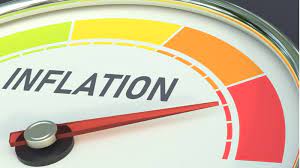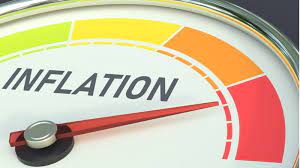
According to David Mann, chief economist for Asia-Pacific, the Middle East, and Africa at the Mastercard Economics Institute, the period of high inflation has already passed but it will remain higher in 2023 than that of before the Covid pandemic.
“Inflation has seen its peak this year, but it will still be above what we had been used to pre-pandemic next year,” Mann said.
He estimates that it will take several years to return to 2019 levels.
“We do expect that we go back down in the direction of where we were back in 2019 where we were still debating how many countries needed negative interest rates.”
In response to high inflation, central banks around the world raised interest rates as recently as November.
According to Reuters, they include central banks from the Group of 10 nations, like the United States Federal Reserve, the Bank of England, and the Reserve Bank of Australia, as well as those from emerging markets, such as Indonesia, Thailand, Malaysia, and the Philippines.
This week, the Fed will hold its December policy meeting, at which it is expected to raise interest rates by 50 basis points. So far this year, the Fed has raised interest rates by 375 basis points.
“Inflation has become that big challenge. It’s been spiking and staying very high,” Mann said. But he warned that it would be risky if central banks end up hiking rates more than they need to.
“The challenge is if you’ve lost orientation of where the sky and the ground is, you’re not quite sure where you need to end up,” Mann said.
If central banks "go slightly too far and then need to reverse relatively quickly," it would be a "serious scenario," he added.
Despite high inflation, Mann believes that US consumers are still willing to spend money on things like travel.
Travel recovery in the United States is strong, and people continue to prefer to spend money on experiences rather than material goods, according to Mann.
They are also being frugal with their spending on necessities in order to afford non-essentials, he added.
“There is something in the back of people’s minds that worries them that even though it’s not very likely, it’s still possible that those [Covid] restrictions [will] come back,” he said.
(Source:www.cnbc.com)
“Inflation has seen its peak this year, but it will still be above what we had been used to pre-pandemic next year,” Mann said.
He estimates that it will take several years to return to 2019 levels.
“We do expect that we go back down in the direction of where we were back in 2019 where we were still debating how many countries needed negative interest rates.”
In response to high inflation, central banks around the world raised interest rates as recently as November.
According to Reuters, they include central banks from the Group of 10 nations, like the United States Federal Reserve, the Bank of England, and the Reserve Bank of Australia, as well as those from emerging markets, such as Indonesia, Thailand, Malaysia, and the Philippines.
This week, the Fed will hold its December policy meeting, at which it is expected to raise interest rates by 50 basis points. So far this year, the Fed has raised interest rates by 375 basis points.
“Inflation has become that big challenge. It’s been spiking and staying very high,” Mann said. But he warned that it would be risky if central banks end up hiking rates more than they need to.
“The challenge is if you’ve lost orientation of where the sky and the ground is, you’re not quite sure where you need to end up,” Mann said.
If central banks "go slightly too far and then need to reverse relatively quickly," it would be a "serious scenario," he added.
Despite high inflation, Mann believes that US consumers are still willing to spend money on things like travel.
Travel recovery in the United States is strong, and people continue to prefer to spend money on experiences rather than material goods, according to Mann.
They are also being frugal with their spending on necessities in order to afford non-essentials, he added.
“There is something in the back of people’s minds that worries them that even though it’s not very likely, it’s still possible that those [Covid] restrictions [will] come back,” he said.
(Source:www.cnbc.com)





